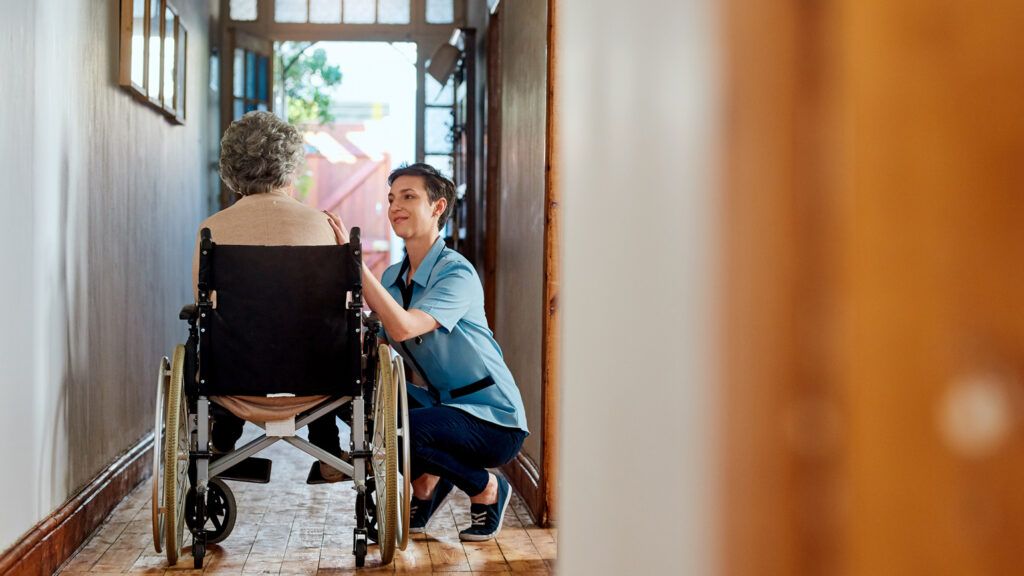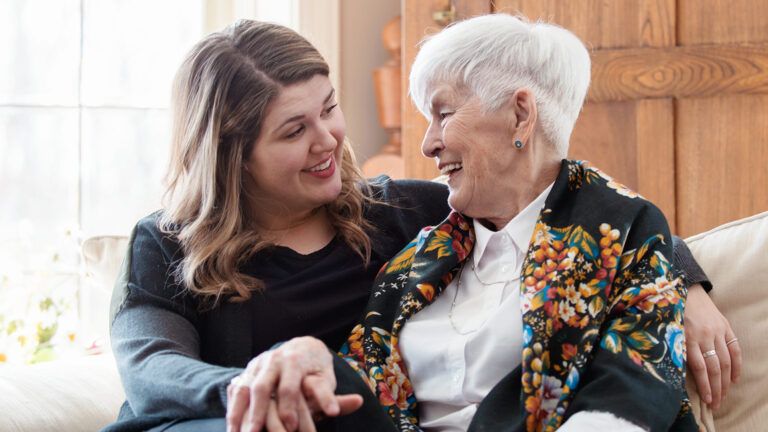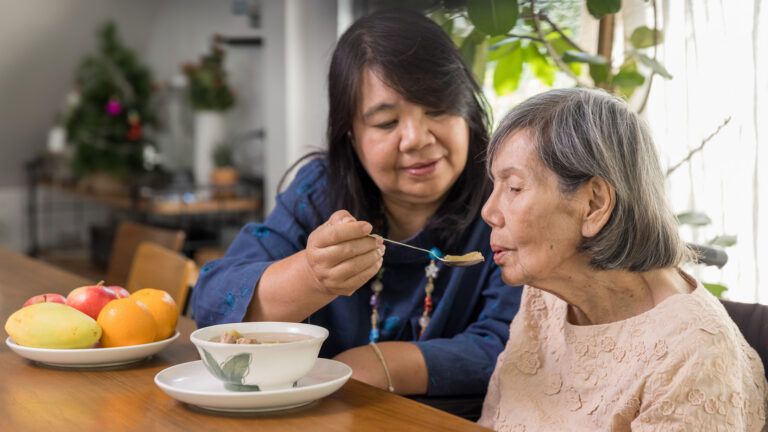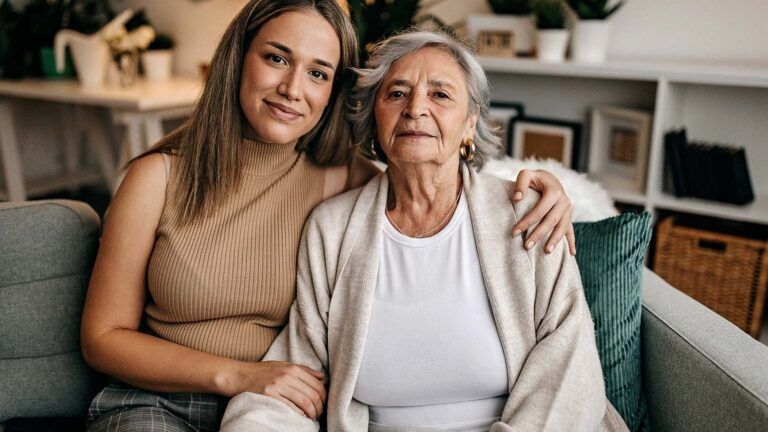Exhaustion may be the biggest tip-off. You’ve been up three nights in a row, yet you’re holding down the fort, your job and your parent’s evolving care needs. This is how it’s been since your mother or father was diagnosed with Alzheimer’s disease, and you wouldn’t want it any other way. But chinks in your armor are starting to show, and once in a while, you entertain the thought of getting some help. Maybe someone could play checkers with Dad twice a week while you do the grocery shopping. Wouldn’t it be nice to have someone else do the laundry and dishes?
You may not be sure that your parent (or you) need in-home caregiving help. It could be that something else stops you. “A lot of times it’s about feeling like, this is my job and I should be able to handle it,” Ruth Drew, director of Information and Support Services at the Alzheimer’s Association, told Guideposts.org. “Maybe there’s a little bit of denial about what an enormous job it is—that if I’m not doing it all myself, I’m failing as a caregiver.” But asking for help is a sign of strength, Drew said, because it can allow you to keep providing your parent with the very best care over the long haul.
If you’re wondering whether this is the right time for in-home care, Drew offered the following indicators:
You can no longer handle the physical caregiving.
“I know of one woman who was caring for her father and he was a great big 6-foot-tall guy,” Drew said. “She was this petite thing—maybe 5’3”. It got to the point where she could not support him well enough to bathe him.” An in-home care aide now handles the bathing twice a week.
You can’t keep up with medications.
Organizing and dispensing medications can be complicated when you’re stressed. It’s possible an older caregiver may even have some mild cognitive impairment. An in-home care aide can who can set up medications in organized pill containers on a weekly basis can be a lifesaver.
You’re too tired.
When your loved one is up all night, so are you. “Sleep deprivation can take any one of us down pretty quickly,” said Drew. An in-home caregiver could take the night shift or simply give you a break during the day for appointments or to get some rest.
You’re showing signs of stress.
Signs of caregiver stress include insomnia, withdrawal from people and things you used to enjoy, and losing your temper or crying more often than usual. Caring for a loved one with dementia can eventually become a round-the-clock job, as the disease progresses. “Nobody can work 24/7. I mean nobody,” Drew said.
Your loved one needs skilled care.
Levels of in-home care range from companion and homemaker services to personal care and skilled care. If your loved one needs assistance with things like wound care, injections or physical therapy, a licensed health professional will need to provide these services. By hiring a skilled care aide to come to your home, you can continue to keep Mom or Dad close by.
In-home care can give you peace of mind while you provide the personal touches that have made your caregiving journey unique and special.
The Alzheimer’s Association offers these additional resources:
Caregiver health: https://alz.org/help-support/caregiving/caregiver-health
Care options: https://alz.org/help-support/caregiving/care-options
In-home care: https://alz.org/help-support/caregiving/care-options/in-home-care





